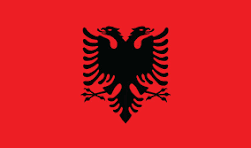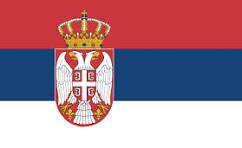The kitchen has always been the hub of the home: a place where meals are prepared, convivial moments are shared, conversations are exchanged, and refuge is sought during sleepless nights. In recent years, this space has been undergoing an epochal transformation, becoming increasingly technological, functional, and environmentally friendly. The epicentre of our daily domestic life, it looks towards a future that promises to revolutionise the way we prepare, cook and share food.
This radical change is the result of decades of inspiration by architects and designers and is continually fuelled by rapid technological advances, as well as growing awareness of sustainability and our new culinary and nutritional needs.
In this article, we explore the major trends and innovations that are redefining the kitchen of the future, focusing on key topics such as modular hoods, space management, smart technology, lighting and eco-friendly appliances.
Modular hoods: the future of extraction
The new cooker hoods are an example of how technological innovation, sustainability and attention to detail are transforming even the most traditional elements. Always an essential component for maintaining clean and fresh air in the kitchen, recently vacuum elements have taken this functionality to the next level, embodying the perfect synergy between form and function. Designed to suit specific needs, the modular hoods consist of several separate units or modules, each of which has a specific function and can be configured to suit the needs of the kitchen, allowing for greater flexibility in the arrangement of elements and adapting to any style of décor.
An early, pioneering example of a modular hood: T-Shelf the iconic island kitchen hood innovatively designed by Faber reinvents the classic island hood structure with an ideal result for open spaces: designed to guarantee customisation of the cooking space, its lattice structure allows the elegant glass shelves to be used, offering a solution that is both practical and refined.
Space Management: versatility and optimisation
Space management is a crucial aspect in the kitchen of the future. Designers are looking for innovative solutions to maximise the use of space, especially in small kitchens. An example of this trend is offered by concealed electrical appliances and furniture, which blend seamlessly into the environment when not in use, freeing up valuable space and optimising the square metres available.
This objective has been fully achieved in the Galileo NG, Galileo SMART and Galileo Glass models by Faber, where the hob and extractor hood are united in a perfectly integrated unique product, favouring a strategic optimisation of space. Thanks to their intelligent and compact design, sufficient free space is also ensured in the cabinet underneath, so that a drawer can be inserted directly under the hob.
Smart Technology in the kitchen
Smart technology is revolutionising cooking in surprising ways. It is now possible to control kitchen appliances, temperature and lighting via smartphones or voice assistants, allowing you to monitor and adjust cooking processes remotely for perfect results even when you are away from home. The best cooker hoods are also equipped with intelligent sensors that automatically adjust suction according to the amount of smoke and vapours in the room, ensuring a clean and odour-free environment at all times.
A fine example of 'smart' hoods, Faber's K-AIR vertical hood has an integrated 21" monitor, which can be controlled directly through the touch screen or via App. Thanks to the exclusive Air Quality Sensor, it monitors temperature, humidity and the presence of volatile organic compounds (VOC) in the home environment.
Among its technological advantages is the exclusive Faber Cloud app that allows you to monitor the air quality in the kitchen and adjust the main hood settings from your mobile phone, anytime and anywhere.
Other innovative smart technology that Faber boasts in other products is K-Link Technology: thanks to the radio connection between kitchen hood and induction hob, the suction power automatically adjusts itself according to the chosen cooking level, allowing you to optimise performance and avoid wasting energy.
Lighting: creating an “efficient atmosphere”
Lighting plays a crucial role in the kitchen of the future, not only in terms of visibility during meal preparation, but also in creating a cosy atmosphere. LED lights are increasingly popular due to their energy efficiency and ability to regulate light intensity. In addition, intelligent lights can adapt to different activities in the kitchen, changing from bright light for food preparation to warmer light for convivial moments.
Environment: Eco-friendly appliances
Environmental sustainability is an increasingly important concern when designing kitchens of the future. Green appliances are becoming the norm, and through using advanced technologies can reduce energy consumption and environmental impact. Just as the dishwashers and washing machines of the future could use less water and detergents thanks to advanced sensors that detect the degree of soiling and adjust the washing cycle, the use of recyclable and sustainable materials in the construction of furniture and worktops will also contribute to making the kitchen increasingly eco-friendly. With this in mind, the best hoods on the market today, ensure increased energy efficiency with the presence of advanced motors that minimise energy waste.
A great example that contributes to a more sustainable home environment is the Galileo NG hob extractor by Faber, among the most energy efficient hob extractors in Europe with a class of A+++. Its brushless engine is one of the quietest on the market, and, in addition to providing first-class performance, helps to significantly reduce energy consumption.
The kitchen of tomorrow is therefore destined to be a place where functionality, design and technology come together in an increasingly harmonious and effective way. With an increased focus on customisation and sustainability, it promises to be an even more welcoming and efficient space in the years to come, capable of generating and spreading positive energy in our domestic environment.







